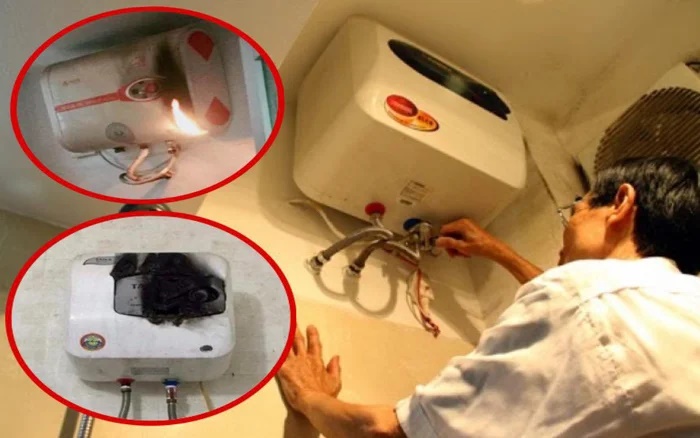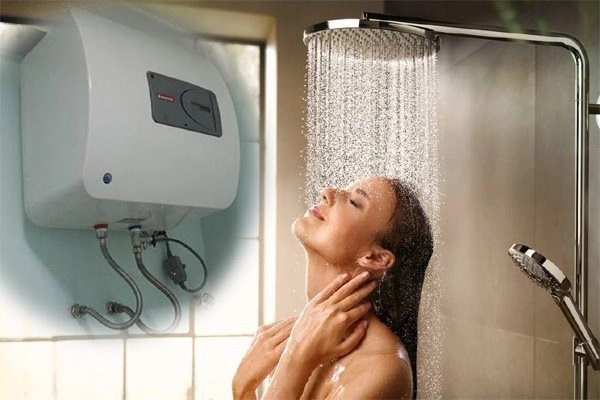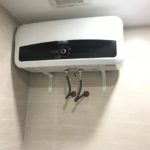As the weather turns colder, many families rely more heavily on hot water. To prevent fires and explosions and protect your family’s safety, stop these three common hot water heater habits immediately.
Leaving the Water Heater on All Day
Keeping your water heater on 24/7 can reduce the accuracy of the sensor, shorten the appliance’s lifespan, and lead to electrical leaks that put your family at risk. Unfortunately, this is a common practice, leading to unfortunate incidents.

The constant operation wears down the insulation of the Mayso wire, affecting the performance of the electrical cutoff system. This increases the risk of electrical leaks, which can lead to electric shocks, fires, and explosions with deadly consequences.
For your family’s safety, avoid leaving the water heater on all day. Instead, plug it in 30–45 minutes before use, and remember to turn it off while bathing and when not in use.
Not Turning Off the Water Heater During Bath Time
Turning off the electricity to your water heater during bath time is the first and most critical safety rule every family should follow. As mentioned earlier, leaving the power on during bath time is a leading cause of electric shocks and fatalities.
While most modern water heaters have an automatic cutoff relay, assuming it’s safe to keep the power on is dangerous. Electrical leaks can still occur, especially as the water heater ages and its internal components become less effective. For absolute peace of mind, cut the power at the circuit breaker or switch before bathing.
Neglecting the Quality of Water Used
It’s not just electricity; the quality of the water you use matters, too. The water source can affect the durability of the Magie rod, which prevents acid corrosion and oxidation buildup inside the tank. Contaminated water can erode this rod, increasing the risk of electric shocks as dirty water conducts electricity better than clean water.
Pay attention to your water source, and opt for clean water to protect your water heater and your family’s safety.
Tips for Safe Hot Water Heater Use
Hot water heaters can sometimes malfunction without our knowledge, posing dangers to our families. To ensure safe use of this electrical appliance, keep these two things in mind:
Regular Maintenance and Inspections
Over time, the quality of your water heater will deteriorate, impacting its performance. Regular checks and maintenance are crucial to extending its lifespan and ensuring your family’s safety. Neglecting maintenance can lead to hidden dangers, increasing the risk of fires, explosions, and electrical leaks. To keep all components in good working order, have a technician inspect and maintain your water heater at least once every three months.

Install Additional Safety Measures
Water heater explosions can have devastating consequences. To protect your family, consider installing anti-scalding and anti-explosion devices. The market offers various machines with safety features like burn protection and good warranties, giving you peace of mind. These systems will automatically cut the power in the event of a leak or electrical surge, ensuring your family’s safety.
When purchasing a water heater, opt for reputable, high-end brands for added safety and peace of mind.
According to Cars and Sports
Avoiding the ‘Electric Shock’ from Static Electricity in Winter
Step into a world of electrifying insights as we unravel the secrets to taming the shocking phenomenon of static electricity this winter. Prepare to be enlightened as we reveal tips and tricks that will spare you from the unexpected jolts and leave you feeling in control and empowered. Get ready for a shock-free season ahead!
Install your hot water heater carefully: Electrical leaks can be dangerous
The installation of a water heater is a crucial step that many families overlook. However, it is important to approach this task with care and attention to detail. Despite its importance, there are still many households that underestimate the significance of this process. As a result, they may encounter various issues and complications down the line. By taking the time to properly install a water heater, homeowners can ensure its optimal performance and longevity. Don’t underestimate the importance of this task – invest the time and effort now to avoid potential headaches in the future.





































